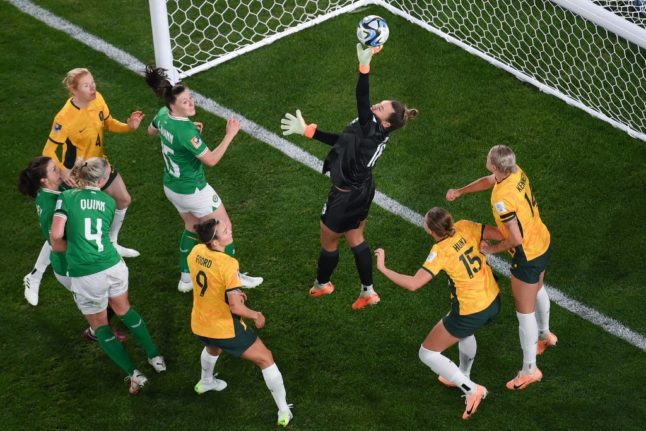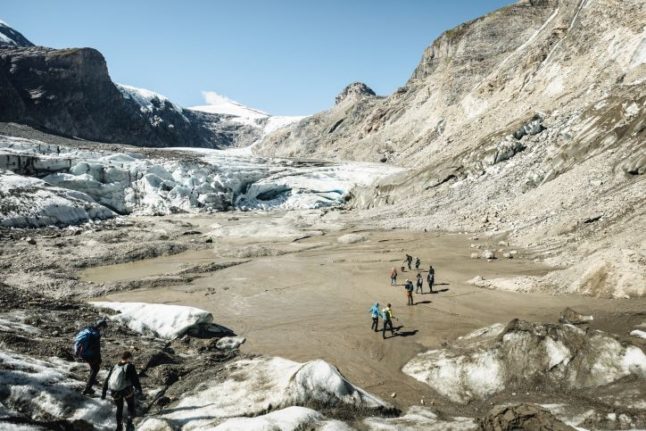It’s already been a remarkable World Cup so far. The rest is yet to come…
For those of us unable to get to either host nation for the remainder of the tournament, there is good news – Austrian public broadcaster ORF and German public broadcasters ARD and ZDF secured the rights to show all of the matches, so they’re available to watch free to air on either ARD, ZDF or ORF 1.
ORF is showing all of the 64 matches live on free-to-watch ORF 1, with the exception of the parallel games at the end of the group stages. You can watch these on ORF Sport +.
Although time differences mean you might have to occasionally get up in the early hours of the morning to catch the earlier matches, and then struggle bleary-eyed through your working day, or persuade someone to write a note to your boss on your behalf.
Here, then, are the the dates, times and channels for the remaining matches in the pool phase of the competition. Be aware, though, that TV schedules are subject to change.
Friday, July 28th (all kick-off times are Austrian time)
2am Argentina v South Africa (ORF)
10.30am England v Denmark (ARD /ORF)
1pm China v Haiti (ORF)
Saturday July 29th
9.30am Sweden v Italy (ZDF/ORF)
12 Noon France v Brazil (ZDF/ORF)
2.30pm Panama v Jamaica (ZDF/ORF)
Sunday, July 30th
6.30am South Korea v Morocco (ARD /ORF)
9am Switzerland v New Zealand / Norway v Philippines (ARD/ORF)
11.30am Germany v Colombia (ARD/ORF)
Monday, July 31st
9am Costa Rica v Zambia / Japan v Spain (ZDF/ORF – match order TBC)
Midday Canada v Australia (ZDF / Ireland v Nigeria (ZDF/ORF)
Tuesday, August 1st
9am Portugal v USA (ZDF) / Vietnam v Netherlands (ZDF/ORF)
1pm Haïti v Denmark (ZDF) / China v England (ZDF/ORF)
Wednesday, August 2nd
9am South Africa v Italy (ARD /Sportschau.de) / Argentina v Sweden (ARD /ORF)
12 noon Panama v France (ARD /Sportschau.de) / Jamaica v Brazil (ARD /ORF)
The knockout phase of the tournament kicks off on Saturday August 5th. While the teams involved remain to be determined, the broadcasters have agreed to show matches as follows:
Saturday, August 5th: Round of 16
7am Winner Pool A v second Pool C (ARD/ZDF/ORF)
10am Winner Pool C v second Pool A (ARD/ZDF/ORF)
Sunday, August 6th: Round of 16
4am Winner Pool E v second Pool G (ARD/ZDF/ORF)
11am Winner Pool G v second Pool (ARD/ZDF/ORF)
Monday, August 7th: Round of 16
9.30am Winner Pool D v second Pool B (ARD/ZDF/ORF)
12.30pm Winner Pool B v second Pool D (ARD/ZDF/ORF)
Tuesday, August 8th: Round of 16
10am Winner Pool H v second Pool F (ARD/ZDF/ORF)
1pm Winner Pool F v second Pool H (ARD/ZDF/ORF)
Friday, August 11th
3am First quarter-final (ARD/ZDF/ORF)
9.30am Second quarter-final (ARD/ZDF/ORF)
Saturday, August 12th
9am Third quarter-final (ARD/ZDF/ORF)
12.30pm Fourth quarter-final (ARD/ZDF/ORF)
Tuesday, August 15th
10am First semi-final (ARD/ZDF/ORF)
12 noon Second semi-final (ARD/ZDF/ORF)
Sunday, August 20th
12 noon The final (ARD/ZDF/ORF)



 Please whitelist us to continue reading.
Please whitelist us to continue reading.
Member comments